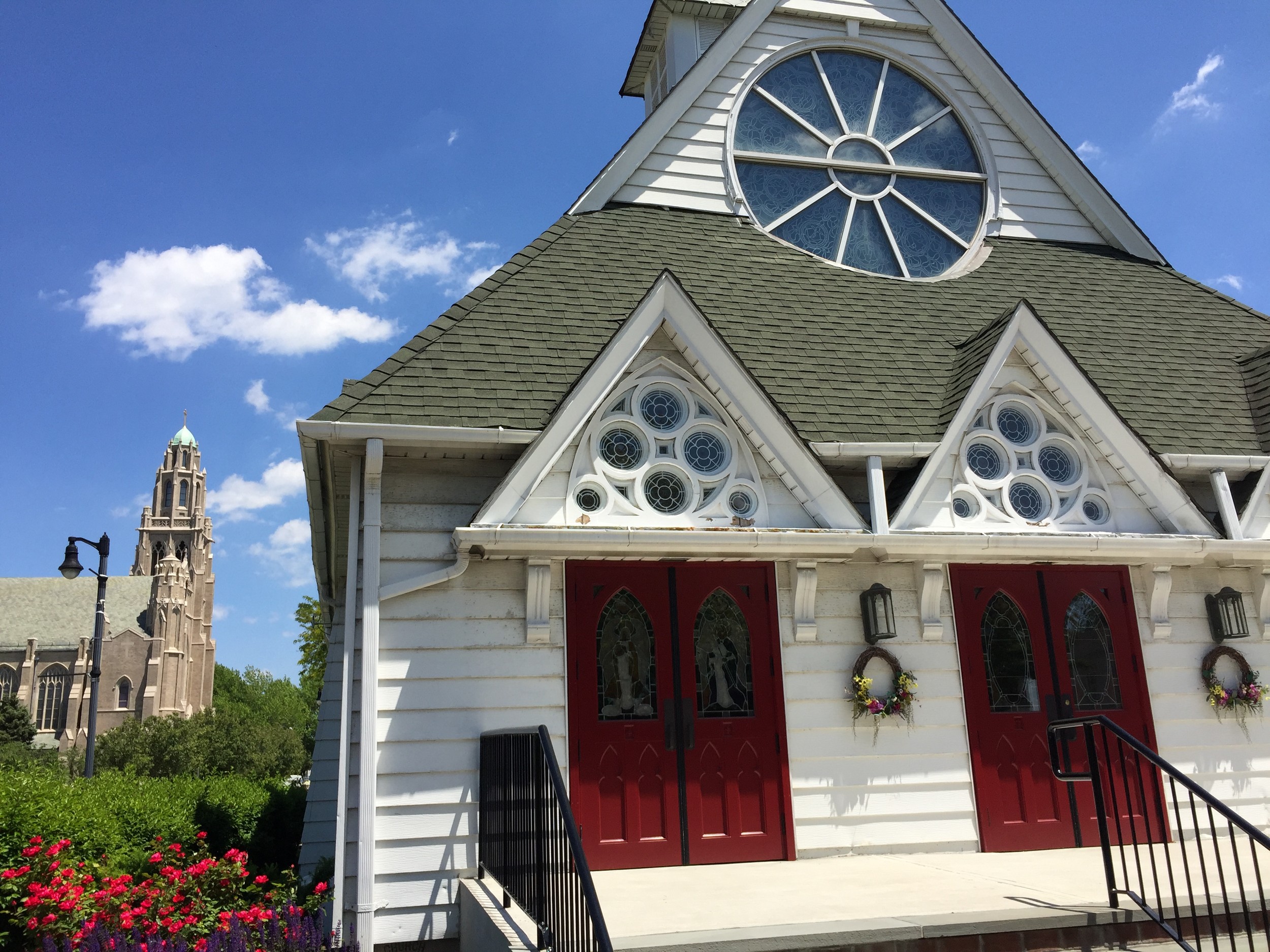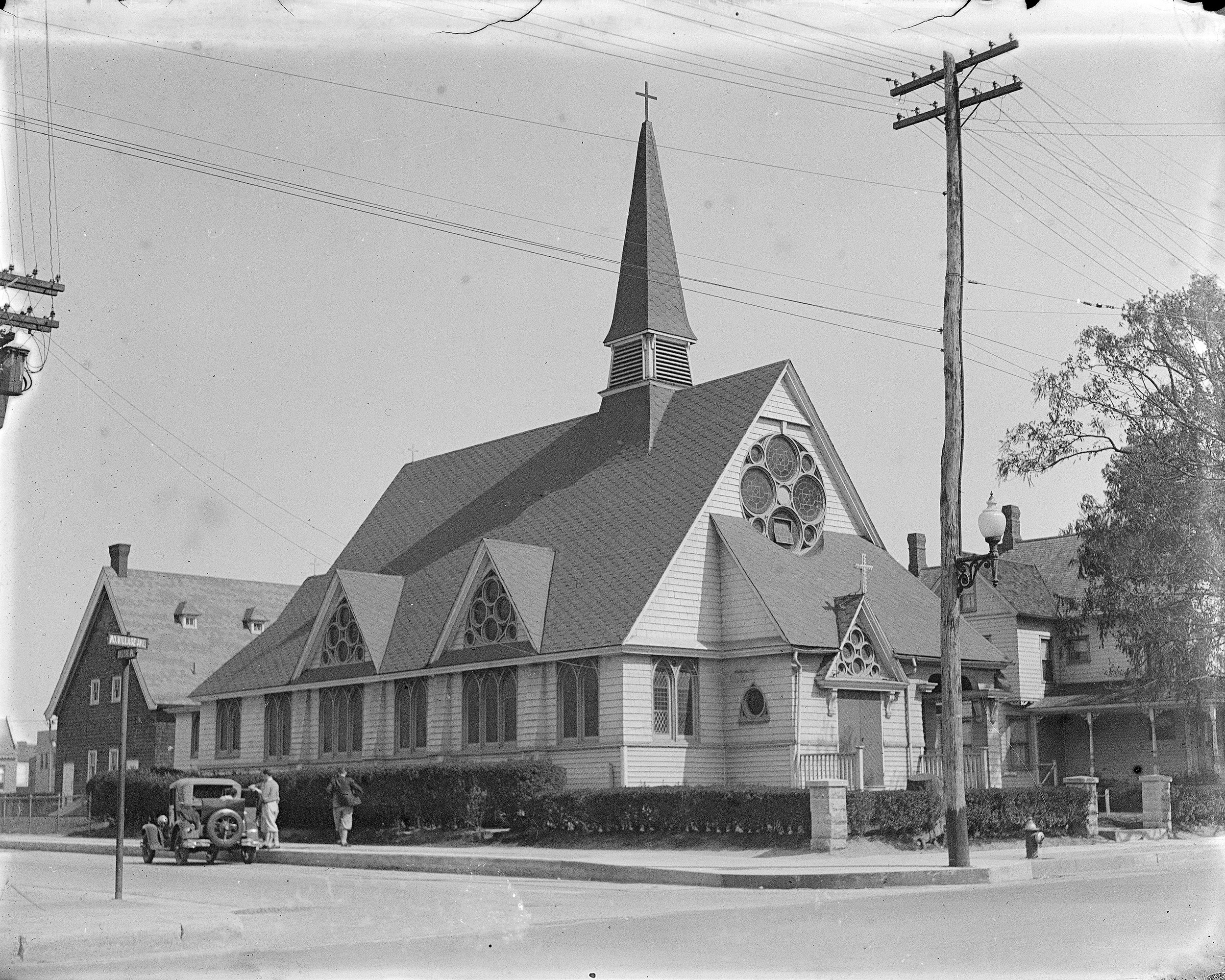Friday, April 19, 2024
 44.0°,
Mostly Cloudy
44.0°,
Mostly Cloudy
Old RVC church’s ‘Ascension’ across from St. Agnes
Episcopalians worshipping 'in the shadow'
As passers-by stop on Quealy Place to look up at the beige brick St. Agnes Cathedral — home of the Diocese of Rockville Centre — a quaint church across the street can be easily overlooked.
“I always refer to St. Agnes as our sister,” said Rockville Centre resident Ken Mensing, who serves as the archivist for the nearby Church of the Ascension. “Our sister across the street may be taller, but we’re older.”
Ascension, an Episcopal church built in 1888, pales in size by comparison to its Roman Catholic neighbor, which was first erected in 1904. Gargoyles perched overhead speak silently of its Gothic Revival style, and members flock every Sunday to the parish, which comprises 5,300 households, according to St. Agnes’s website.
Meanwhile, Ascension averages 100 parishioners spread out over its three Sunday masses, according to Father Kevin Morris, who has served as the church’s priest for the last five years.
“It very much has a family feel to it,” he said, adding that unlike many large Roman Catholic churches, a new parishioner can know half the congregation, and be known, within a week. “It’s a church that has a lot of pride in what it does. The people are very warm, very welcoming.”
Founded in 1885 by Francis Wilson, for whom one of Rockville Centre’s elementary schools is named, the first congregants originally met at what used to be the Institute Building — at the corner of Village Avenue and Sunrise Highway — in its upstairs auditorium, Mensing said.
Members purchased the church’s current property — where North Village Avenue and Quealy meet — a year or two later for $600, he added. The church bought two houses on Hempstead Avenue in the 1920s, and planned to move the church there, but when the Great Depression hit, they decided to stay.
An expansion of Ascension, which connected the church and the parish hall, was completed in 1942. A sign outside the church touts that it is home to the only congregation in Rockville Centre still in its original building. When St. Agnes was being renovated in 1981, daily Mass was held at Ascension.
Entering the front remodeled doors, visitors can make their way down the church’s center aisle and bear right into a shrine dedicated to Mary. A small morning chapel is a little farther, and past that are stairs up to the parish hall — where musical performances, support group meetings and other events are held — and down to classrooms that house Ascension’s Sunday School program. The church has taken its youth on pilgrimages to Spain, England and the Middle East, and brings back keepsakes that adorn the place of worship.
“So many fascinating things happen there, and we do kind of get lost in the shadow,” Mensing said.
The Episcopal Church stems from the Church of England, and Ascension in particular identifies as an Anglo-Catholic community, Morris said, adding that he believes his parishioners who come from Roman Catholicism often feel at home.
The theology and liturgy are quite similar, he added.“On other things, we are far more liberal than the Roman Catholic Church,” Morris said. “We have women priests.” He paused. “I’m married to another man.”
Raised in Florida as a Southern Baptist, Morris converted to the Episcopal Church while in college. Growing up as a gay man, he said he was seeking a place where he could be who he was.
“Especially young people who are in that stage in their life where they are starting to question a lot of things and willing to explore things, I think they find in the Episcopal Church that their questions are not turned away,” he said.
Ascension conducts same-sex weddings and remarries divorced people.
“While we have the same faith, I believe, as the Roman Catholic Church, there is something of the culture of how we believe it,” Morris continued. “The Episcopal Church is far less likely to say, ‘These are all the things you need to believe.’ The Episcopal Church is more likely to say, ‘Let’s pray together.’”
Aileen Evans, 93, has been a parishioner at Ascension since 1944, when she was married there, and her four children were later baptized at the church. “As time’s gone on, it’s very welcoming of very different peoples,” Evans said. “In addition to it being a beautiful place to worship, the parishioners — although they are very diverse — [make up] a very supportive community.”
She added that some of her friends from St. Agnes that occasionally attend mass at Ascension notice the change of pace. “It’s like a small family as opposed to a large city,” Evans said.
Though Morris values Christian traditions, he said he believes customs can develop over time, and that it is important to worship in the context of the modern world. “I think that people who may not feel comfortable across the street, might feel comfortable here, and vice versa,” he said. “Perhaps it’s divine providence that God put us here. In a way, we complement each other.”
HELP SUPPORT LOCAL JOURNALISM
The worldwide pandemic has threatened many of the businesses you rely on every day, but don’t let it take away your source for local news. Now more than ever, we need your help to ensure nothing but the best in hyperlocal community journalism comes straight to you. Consider supporting the Herald with a small donation. It can be a one-time, or a monthly contribution, to help ensure we’re here through this crisis. To donate or for more information, click here.
Sponsored content
Other items that may interest you







